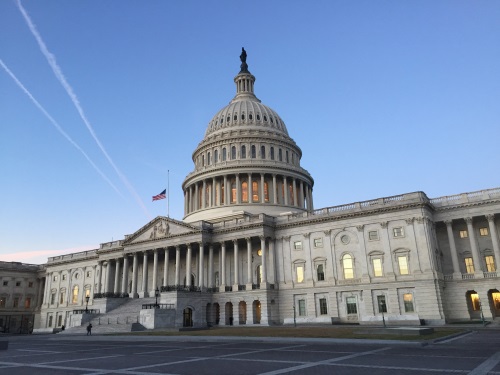The American Association of State Highway and Transportation Officials provided policy perspectives in a March 18 letter to the leadership of the House of Representatives Transportation & Infrastructure and Appropriations committees on the move to restore earmarks to surface transportation reauthorization and annual funding bills.

AASHTO sent its letter to Rep. Peter DeFazio, D-Ore., and Rep. Sam Graves, R-Mo. – the respective chair and ranking member of the House T&I committee – plus Rep. Rosa DeLauro, D-Conn., and Rep. Kay Granger, R-Texas, the respective chair and ranking member of the House Committee on Appropriations.
In that letter, AASHTO expressed appreciation for their leadership in attaining fiscal support for transportation. That support included supplemental appropriations for transportation from the general fund, a one-year extension of the Fixing America’s Surface Transportation or FAST Act that incorporated an additional $13.6 billion transfer to the Highway Trust Fund transfer in September 2020, plus $10 billion in direct aid to state departments of transportation for COVID-19 relief in December 2020.

In regards to earmarks, Jim Tymon, AASHTO’s executive director, noted that the organization’s members “are fully committed to partnering with members of Congress to identify appropriate projects for Congressional designation by encouraging all of our members to reach out to their Congressional delegations to work together on this process.”
The letter also noted that AASHTO “commend[s] the reforms and guidelines set forth in your approaches to the return of Congressionally-directed funding” by including new parameters in the earmarking process, such as making sure Congressionally directed projects are included in the statewide transportation improvement program and ensuring earmarked projects have full funding identified by project sponsors for completion.

However, AASHTO also noted that Congressional earmarking of highway funding that is distributed to state DOTs by formula may undercut the state and local prioritization and public input process for the selection of transportation projects.
The letter further recommends that “transportation earmarks should be provided outside of the Federal-aid highway program funds currently guaranteed to states via the formula program” as “Congressionally-directed project funding that comes from within the state’s federal share jeopardizes the ability of state DOTs to program and obligate Federal-aid formula dollars for well-established state and local priorities.”
Lastly, AASHTO notes there are “well-documented instances” of Congressionally-designated transportation project funding that remained “unobligated for years” because projects were not ready for federal investment.
“For this reason, we laud Congress for establishing an annual process since fiscal year 2016 for state DOTs to repurpose unobligated earmarks that could not be used as originally intended, thereby allowing these unobligated funds to be put to work,” the organization said.
“However, in order to avoid federal transportation funds from sitting unused for multiple years, Congress should establish a reasonable obligation timeframe for any earmarked funds,” it noted.



